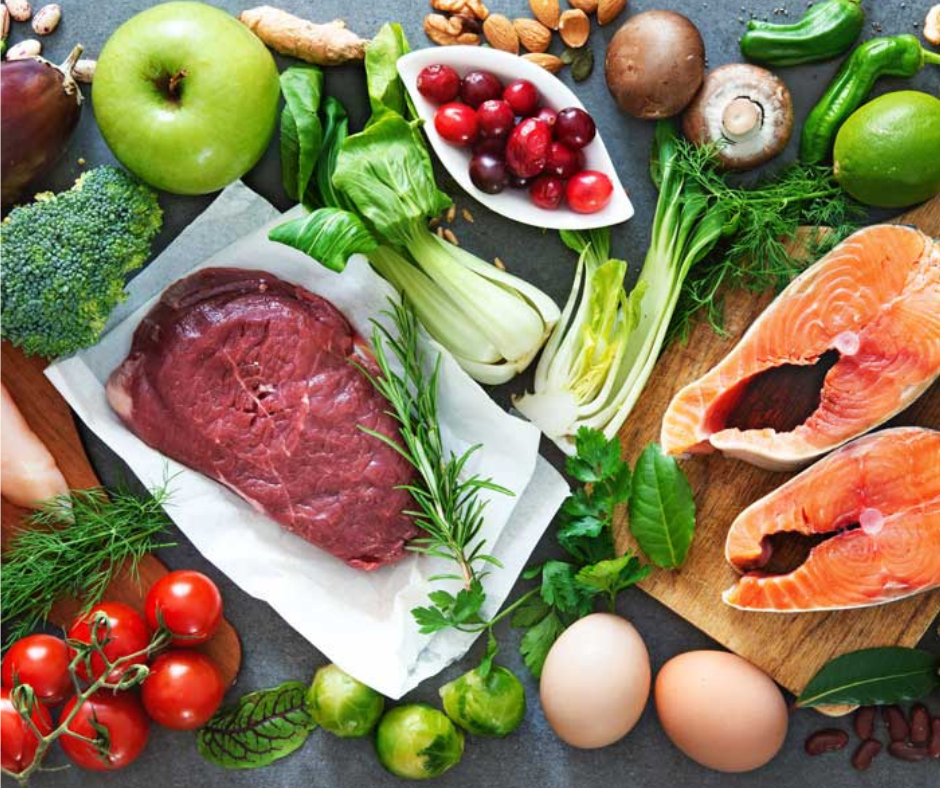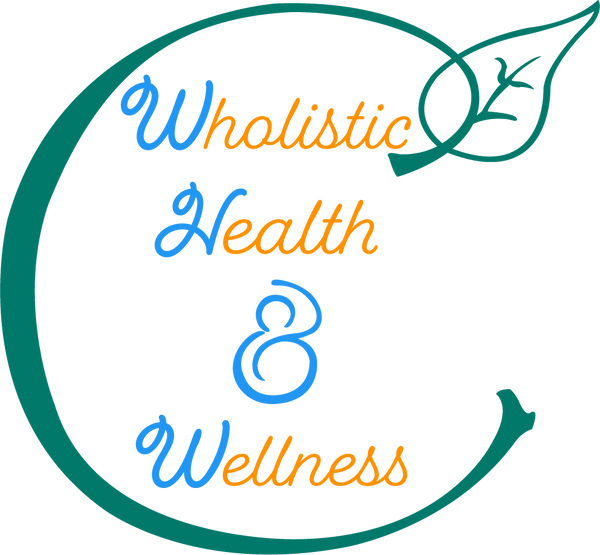
Part Four: Nurturing Your Gut
Share
A Four-Part Blog Series
By Carrie Colarusso, Holistic Nutrition Therapist
Part Four: Nurturing Your Gut
A healthy gut lead to better mood, robust immunity, and efficient detoxification
Now that you know that our gut affects our mood, immunity and detoxification, how do you develop and maintain a healthy and diverse microbiota and harmonious body and mind?
A diet focused on whole foods, prebiotic and probiotic rich foods, and significantly limited processed food has been called the “Psychobiotic Diet,” since studies have shown a link to reduced stress, decreased depression and better mood.
“Diet is the most modifiable and accessible way for people to promote a healthier microbiome. Diet plays a crucial part in our microbiota makeup." (Dr. Spencer)
Whole foods vs processed foods
Consuming healthy foods fosters an environment where good microbes thrive, which benefit our physical and mental health. Processed food consumption negatively affects the gut microbiome causing inflammation and an imbalance in the microbiota called dysbiosis; therefore, consuming highly processed foods negatively affects our mood and physical wellbeing.
- The Cambridge Dictionary defines whole food as food that has not had any of its natural features taken away or any artificial substances added.
- The Department of Agriculture defines processed food as any raw agricultural commodities altered from their original state.
Whole foods include foods like whole grains, fruits, a variety of raw and cooked vegetables, lean meats like chicken and fish, milk, plain yogurt, legumes, nuts, and seeds.
Processed foods are those with ingredients added for flavor and texture, such as sweeteners, oils, colors and preservatives. Some foods are more processed than others.
- Processed food includes things like jarred pasta sauce, store bought salad dressing, yogurt which is not plain, and cake mixes and other boxed mixes.
- Highly processed foods include ready-to-eat foods like crackers, chips and fast food.
- Heaviest processed foods include sweetened breakfast cereals, soda, energy drinks, artificially flavored crackers and potato chips, chicken nuggets and hot dogs.
A whole foods diet is the best way to take care of your gut microbiome. This means regularly consuming unprocessed (or very minimally processed) foods regularly. The more diversity in your whole foods diet leads to a more diverse microbiota.
Nutrients, antioxidants and anti-inflammatory foods
A diet rich in not only prebiotics and probiotics, but anti-inflammatory and antioxidant rich foods are also crucial in keeping our microbiota healthy; therefore, supporting mood, immune system, and detox pathways.
Vitamins, minerals and other nutrients are not only antioxidants but are also anti-inflammatory and essential to the microbiota integrity.
Anti-inflammatory foods include whole foods including fruits and vegetables and healthy fats. They prevent inflammation, keeping the gut healthy.
Antioxidant rich foods, mainly colorful fruits and vegetables, not only fight free radicals (unstable atoms that damage cells, causing illness and aging), but keep the gut lining healthy and boost immune system.
Eating organic as much as possible limits exposure to pesticides, hormones, and antibiotics through dietary sources.
Vitamins, Minerals, and Food Sources
The following vitamins and minerals and food sources are the most important ones to include in a whole foods diet and may double as sources of prebiotics or probiotics:
- Vitamin C – Found in citrus fruits, spinach, kale, bell peppers, brussels sprouts, strawberries and papaya
- Vitamin E – Found in high fat plant foods such as almonds, peanuts, nut butters, hazelnuts, and seeds
- Vitamin A – Found in fish (especially tuna), meat, dairy, carrots, sweet potatoes, squash, cantaloupe, and dark leafy greens
- Vitamin D –Found limited in salmon, mackerel, tuna, and sardines.
- Vitamin D is best synthesized from skin exposure to sunlight or from supplementation if not enough is consumed from food sources.
- Folate –Found in beans, lentils, leafy greens, and avocado.
- Iron –Abundantly found in red meat, chicken, turkey, canned sardines, oysters, clams, mussels and canned light tuna, but also in beans, broccoli, and kale.
- Selenium –Found in seafood, tuna, halibut, sardines, red meat and liver, poultry, cottage cheese and Brazil nuts. Brazil nuts contain a high amount of selenium so should not be consumed in abundance.
- Zinc –Found in oysters, crab, lean red meats and poultry, baked beans, yogurt, and chickpeas.
Keep in mind the longer you have been indulging in processed foods (or excessive alcohol), the longer it will take for your microbiota to rebalance and absorb nutrients from a new healthier diet and it can take time to feel the health benefits of a healthy gut.
Probiotic and Prebiotics
Probiotics and prebiotics are also essential in the gut for immune cell function, nutrient absorption, and aiding in detoxification within the gut and liver.
Probiotics are fermented foods that provide beneficial live bacteria to your gut. Probiotics aid in essential breakdown of nutrients from food and maximize nutrient and vitamin absorption in your body. They are essential in a balanced microbiota.
Foods such as yogurt, kefir, buttermilk, sauerkraut, pickles, and kimchi are probiotic foods.
Probiotics can also help enhance detoxification pathways in the body.- They can deter toxins from the gut walls.
- They provide antibacterial substances and vitamins to promote a healthier microbiome.
- They promote gut peristalsis and healthy stool elimination.
Prebiotics are fiber rich foods that contain soluble fiber. The live beneficial bacteria use prebiotics as food to grow and nourish the gut lining. In addition, when the microbiota digest the fiber, it produces short-chain fatty acids, which are important for gut health as well.
Fibrous fruits such as apples and pears, as well as vegetables such as potatoes, asparagus, garlic, onion, oats, whole wheat, legumes, and beans are examples of foods that feed the beneficial bacteria.
Stress Relief
In addition to nourishing your microbiota with proper nutrients, doing what you can to manage your stress is also going to help keep your gut balanced.
Remember the gut-brain connection? While the microbiome influences our mood and overall mental health, the brain influences our microbiome as well.
Excessive stress impacts digestion processes in the gut leading to reduced nutrient delivery to the microbiome and consequently affecting its growth and diversity. Even short-term stress has the power to significantly alter the microbiota.
Improvements at the brain level, such as through meditation can positively influence gut microbiota.
Studies show the potential influence of long-term, regular meditation on the gut microbiota. Participants in one study who practiced meditation exhibited distinct changes in the composition of their gut microbiota compared to a control group, suggesting that mindfulness practices can have a beneficial impact on gut health.
Here are some things you can try to relieve stress in your day-to-day life.
Get exercise. Whether it be a walk, run, resistance, yoga, etc., exercise can help stress and mood disorders.
Go to a place that brings you peace such as the beach, a garden, a park, etc., and try to concentrate on the environment and how good it makes you feel.
Diffuse essential oils. Essential oils are beneficial for calming and grounding. Scents stimulate the nervous system in our brain which induces “feel good” hormone release.
Click here for more information on essential oils/scents and their interaction with our brain.
Light a candle. Candlelight and scented candles are known to calm, relieve stress, help focus, and aid in mood disorders. *Vegetable based waxes and use of natural essential oils are best for your health.
Click 1, 2, 3, for more information regarding use of candles and their interaction with our brain.
*Disclaimer: Nutrition and DIY stress relieving techniques are not meant to replace clinical or medical advice or clinical behavioral therapy.
PART FOUR REFERENCES
- Shetty M. More Than a Gut Feeling: How Your Microbiome Affects Your Mood | Cognitive Enhancement. Lifestyle Medicine. Published April 8, 2024. Accessed August 10, 2024. https://longevity.stanford.edu/lifestyle/2024/04/08/more-than-a-gut-feeling-how-your-microbiome-affects-your-mood/#:~:text=Neurotransmitters%20are%20crucial%20for%20communication
- Migala J. What Is a Whole-Foods Diet? Benefits, Risks, Food List, and More. EverydayHealth.com. Published February 7, 2022. https://www.everydayhealth.com/diet-nutrition/whole-foods-diet/
- Cleveland Clinic. What To Know About the Gut-Brain Connection. Cleveland Clinic. Published September 20, 2023. https://my.clevelandclinic.org/health/body/the-gut-brain-connection
- Harguth A. What you should know about processed foods. www.mayoclinichealthsystem.org. Published March 21, 2022. https://www.mayoclinichealthsystem.org/hometown-health/speaking-of-health/processed-foods-what-you-should-know
- If you want to boost immunity, look to the gut. Uclahealth.org. Published March 19, 2021. Accessed August 10, 2024. https://www.uclahealth.org/news/article/want-to-boost-immunity-look-to-the-gut#:~:text=But%20you%20might%20not%20realize
- Villines Z. Free radicals: How do they affect the body? Medical News Today. Published July 29, 2017. https://www.medicalnewstoday.com/articles/318652
- Cleveland Clinic. What Is Your Gut Microbiome? Cleveland Clinic. Published August 18, 2023. https://my.clevelandclinic.org/health/body/25201-gut-microbiome
- Robertson R. Why the Gut Microbiome Is Crucial for Your Health. Healthline. Published June 27, 2017. https://www.healthline.com/nutrition/gut-microbiome-and-health#TOC_TITLE_HDR_6
- TeamAcko. The Link Between Gut Health and Nutrient Absorption in the Body. Acko General Insurance. Published March 27, 2024. Accessed August 10, 2024. https://www.acko.com/health-insurance/link-between-gut-health-and-nutrient-absorption-in-the-body/
- 8 Vitamins & Minerals You Need for a Healthy Immune System. Cleveland Clinic. https://health.clevelandclinic.org/eat-these-foods-to-boost-your-immune-system
- Did you know that your gut plays a MASSIVE role in detoxification? Read this article to find out how - BiO-LiFE. BiO-LiFE - We care for Your Wellness. Published November 7, 2022. Accessed August 10, 2024. https://biolife.com.my/did-you-know-that-your-gut-plays-a-massive-role-in-detoxification-read-this-article-to-find-out-how/
- Cambridge Dictionary. whole food. @CambridgeWords. Published August 31, 2022. https://dictionary.cambridge.org/us/dictionary/english/whole-food


